
 Flash News
Flash News
Gunfire in Durres, a 30-year-old man is injured
Accident on Arbri Street, car goes off the road, two injured
Arrests of "Bankers Petrolium", Prosecution provides details: Exported and sold 532 billion lek of oil, caused millions of euros in damage to the state
Ndahet nga jeta tragjikisht në moshën 28-vjeçare ylli i Liverpool, Diogo Jota
Posta e mëngjesit/ Me 2 rreshta: Çfarë pati rëndësi dje në Shqipëri
VOA: The fight against organized crime assets in Albania faces obstacles
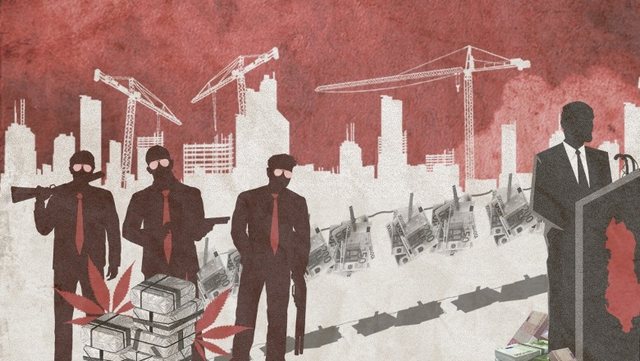
In Albania, the fight against organized crime assets has statistically increased in recent years, but their management is facing difficulties, while legal guarantees that prevent the return of these assets to the hands of criminal groups are lacking.
Money laundering by organized crime groups is considered one of the main risks to Albania's security and economy, and yet, the country faces numerous problems in the fight against illicit assets.
Although statistically the number of seized or confiscated assets has increased in recent years, institutions are encountering difficulties in administering these assets or removing them from the hands of organized crime.
According to the Special Prosecution Office, over the last five years, assets with a market value of around 182 million euros were seized or confiscated, mainly invested in the construction business, real estate or commercial companies.
"Around 70-80% of property investigations here are opened mainly ex-officio by prosecutors, based on the investigations they are pursuing. The State Police also provides assistance through referrals and general jurisdiction prosecutors, and recently, there has been an increase in requests from foreign judicial authorities with the aim of conducting property investigations and confiscations with Albanian citizens who have been convicted outside the territory of Albania for offenses that are within our competence," says SPAK prosecutor Doloreza Musabelliu.
In addition to traditional money laundering sectors, Musabelliu points out that organized crime is also recently investing in cryptocurrencies.
"I can say that only within the framework of the investigations against the "Çopja" organization, significant amounts of real estate, businesses and bank accounts have been seized. Also, cryptocurrencies worth 10 million USD have been seized," Musabelliu added.
However, not all seized assets are managed by the Seized and Confiscated Assets Administration Agency, while a significant portion of them continue to be used by their previous owners.
The agency told BIRN that it currently manages 2,484 assets in total with an estimated value of 1.7 billion lek, or less than 10% of the value declared by SPAK. Among them, 667 assets, or 27% of the total, have not yet been taken under administration.
Legal problems have also emerged with the procedures for renting out seized apartments or administering business companies. According to a report by the Supreme State Audit Office, the main concern is that in some cases, owners who are subject to court decisions continued to administer these assets illegally.
Such cases are also acknowledged by the administrators of seized assets, who say they are taking measures to avoid such occurrences.
"It is a phenomenon that other homologous agencies in the region or the European Union have also faced. It is not always easy to confront organized crime figures and administer and manage them as the law requires. There are always numerous attempts, but with the cooperation of the relevant bodies we are taking all necessary measures to increasingly avoid this phenomenon," says Indrit Karaj, administrator at the Agency for the Administration of Seized and Confiscated Assets.
The European Union suggests using the assets of organized crime for social purposes, but the results in this regard have been limited. Civil society representatives monitoring this process express concern about the lack of legal guarantees that prevents the return of these assets to members of criminal groups.
"The reason why a directive has been issued in the EU for almost two years, which pushes states towards social reuse, is part of the very large guarantee that these properties will not be returned indirectly to the former owner and in the legal framework, there are very large deficiencies regarding the role of the Agency but also of the Prosecutor's Office. It is done only on the basis of self-declaration; that I have no connection with X. This is a very, very large deficiency," says Juliana Hoxha, executive director of the Partners Albania organization.
According to Hoxha, reviewing the legal framework is necessary to strengthen the fight against organized crime assets. VOA
Latest news



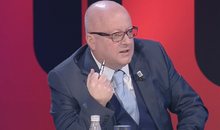
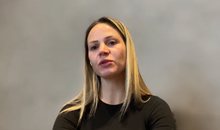

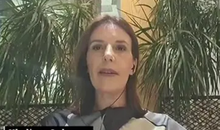

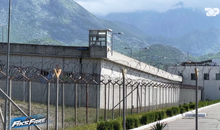

Greece imposes fee to visit Santorini, how many euros tourists must pay
2025-07-03 20:50:37
Don't make fun of the highlanders, Elisa!
2025-07-03 20:43:43
Gunfire in Durres, a 30-year-old man is injured
2025-07-03 20:30:52

The recount in Fier cast doubt on the integrity of the vote
2025-07-03 20:09:03
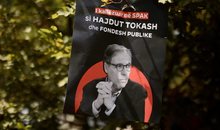

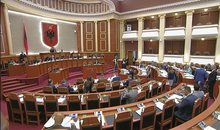

Heatwave has left at least 9 dead this week in Europe
2025-07-03 19:00:01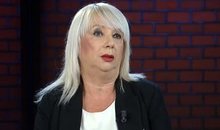

Oil exploitation, Bankers accused of 20-year fraud scheme
2025-07-03 18:33:52
Three drinks that make you sweat less in the summer
2025-07-03 18:19:35
What we know so far about the deaths of Diogo Jota and his brother André Silva
2025-07-03 18:01:56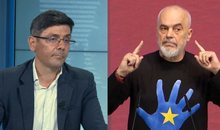
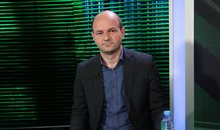


Another heat wave is expected to grip Europe
2025-07-03 17:10:58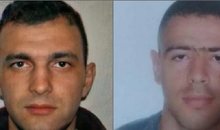
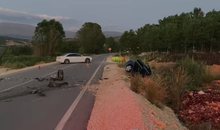
Accident on Arbri Street, car goes off the road, two injured
2025-07-03 16:45:27

Accused of two murders, England says "NO" to Ilirjan Zeqaj's extradition
2025-07-03 16:25:05
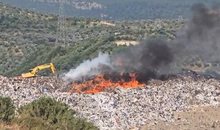



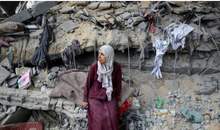
Gaza rescue teams: Israeli forces killed 25 people, 12 in shelters
2025-07-03 15:08:43
Diddy's trial ends, producer denied bail
2025-07-03 15:02:41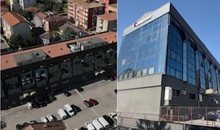

Agricultural production costs are rising rapidly, 4.8% in 2024
2025-07-03 14:55:13
Warning signs of poor blood circulation
2025-07-03 14:49:47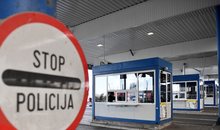
Croatia recommends its citizens not to travel to Serbia
2025-07-03 14:31:19
Berisha: Albania is the blackest stain in Europe for the export of emigrants
2025-07-03 14:20:19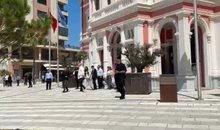

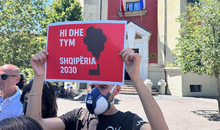
'Ministry of Smoke': Activists Blame Government for Wasteland Fires
2025-07-03 13:59:09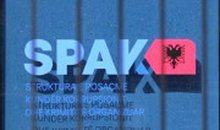

AFF message of condolences for the tragic loss of Diogo Jota and his brother
2025-07-03 13:41:36
Five healthy foods you should add to your diet
2025-07-03 13:30:19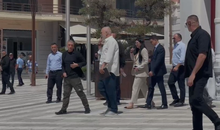



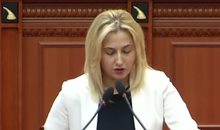


A unique summer season, full of rhythm and rewards for Credins bank customers!
2025-07-03 12:12:20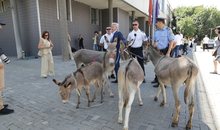

Fire situation in the country, 29 fires reported in 24 hours
2025-07-03 12:00:04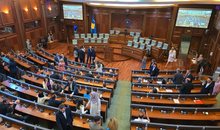
The constitution of the Kosovo Assembly fails for the 41st time
2025-07-03 11:59:57
The gendering of politics
2025-07-03 11:48:36
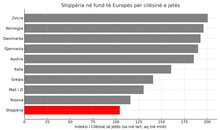
The price we pay after the "elections"
2025-07-03 11:25:39
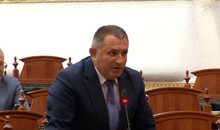
Xhafa: The fire at the Elbasan landfill was deliberately lit to destroy evidence
2025-07-03 11:08:43

The 3 zodiac signs that will have financial growth during July
2025-07-03 10:48:01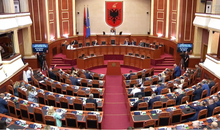
Democratic MP talks about the incinerator, Spiropali turns off her microphone
2025-07-03 10:39:24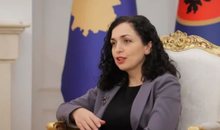

Ndahet nga jeta tragjikisht në moshën 28-vjeçare ylli i Liverpool, Diogo Jota
2025-07-03 10:21:03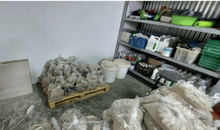
Cocaine trafficking network in Greece, including Albanians, uncovered
2025-07-03 10:10:12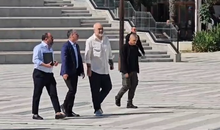
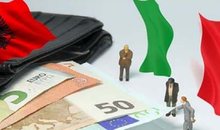
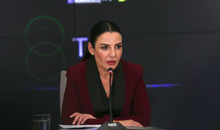
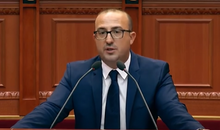
Korreshi: Election manipulation began long before the voting date
2025-07-03 09:39:13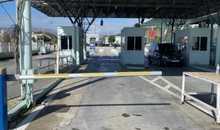
Arrest of Greek customs officer 'paralyzes' vehicle traffic at Qafë Botë
2025-07-03 09:28:41
After Tirana and Fier, the boxes are opened in Durrës today
2025-07-03 09:21:10
Enea Mihaj transfers to the USA, will play as an opponent of Messi and Uzun
2025-07-03 09:10:04

Foreign exchange, the rate at which foreign currencies are sold and bought
2025-07-03 08:53:50
Index, Albania has the worst quality of life in Europe
2025-07-03 08:48:10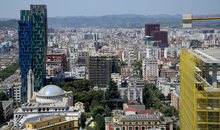
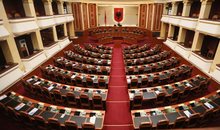

Horoscope, what do the stars have in store for you today?
2025-07-03 08:17:05
Clear weather and high temperatures, here's the forecast for this Thursday
2025-07-03 08:00:37
Posta e mëngjesit/ Me 2 rreshta: Çfarë pati rëndësi dje në Shqipëri
2025-07-03 07:46:48



Lufta në Gaza/ Pse Netanyahu do vetëm një armëpushim 60-ditor, jo të përhershëm?
2025-07-02 21:56:08
US suspends some military aid to Ukraine
2025-07-02 21:40:55



Methadone shortage, users return to heroin: We steal to buy it
2025-07-02 20:57:35
Government enters oil market, Rama: New price for consumers
2025-07-02 20:43:30
WHO calls for 50% price hike for tobacco, alcohol and sugary drinks
2025-07-02 20:41:53



